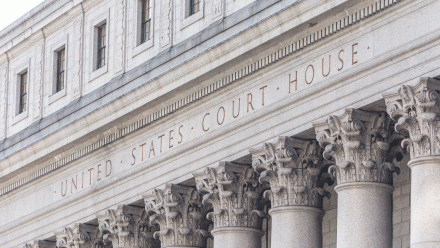A federal court in Texas halted key new overtime pay rules set by the US Department of Labor (DOL), relieving private employers—including churches—from paying potentially significantly more in personnel costs.
Earlier this year, the department instituted a phased plan to increase the minimum compensation that exempt employees must receive in order to not be owed overtime pay under the federal Fair Labor Standards Act (FLSA).
In Texas v. DOL, (E.D. Tex.), the State of Texas and private employers separately sued the DOL, asking the court to void the DOL regulation.
Make sure to pre-order a copy of the 2025 Church & Clergy Tax Guide (available both in PDF and book form) today!
The overtime pay rules
Under the phased DOL rule, the minimum salary went from $684 per week, or $35,568 per year, to $844 per week, or $43,888 per year starting July 1, 2024.
On January 1, 2025, it was scheduled to increase to $1,125 per week, or $58,656 per year. Automatic indexing then would start in 2027.
The plaintiffs claimed DOL’s new minimum salaries exceeded the authority granted to the agency by Congress. They also claimed automatic indexing was not authorized by Congress.
In its ruling issued November 15, 2024, the Texas federal court agreed with the plaintiffs, voiding both salary increases and the automatic indexing.
For now, this decision means that churches and ministries need only comply with the DOL’s previous minimum salary threshold of $684 per week, or $35,568 per year.
It’s possible the DOL will appeal the ruling to the United States Fifth Circuit Court of Appeals. However, success appears unlikely. In 2016, the Fifth Circuit affirmed a lower federal court decision that voided similar DOL attempts to increase the minimum salary threshold for exempt employees at that time.
Any appeal now to the US Supreme Court also would likely lead to an affirmation of the decision, said national nonprofit accounting firm CapinCrouse. And the DOL under the Trump Administration taking office on January 20, 2025, isn’t likely to pursue such an appeal anyway, the firm noted.
Too little, too late?
This outcome potentially relieves churches in two ways, although for those that already made changes to comply with the DOL’s new rule, the decision may prove to be too little, too late.
Before the July 1, 2024, threshold took effect, a church needed to determine which nonministerial positions would need to change from exempt to nonexempt under the new minimum salary test. The church then would need to decide whether to re-classify these workers as nonexempt or increase their compensation to meet the new threshold levels taking effect on July 1, 2024, and January 1, 2025, respectively.
Many churches made changes. With the Texas federal court’s decision, those changes now prove unnecessary.
Those churches could opt to undo those changes, but as CapinCrouse also notes, those churches need to ensure such moves do not violate state laws.
Furthermore, the firm said, churches must consider the negative impact on employee morale that such reversals could cause.
A tug-of-war
The Texas federal court’s decision continues a seemingly constant tug-of-war between employers and the DOL.
On one side, the DOL wants a bright-line salary test between exempt and nonexempt employees. On the other side, employers object to subjecting executive, administrative, and professional employees to overtime simply because they make less money than the DOL requires for the exempt classification.
The Texas federal court reasoned that the DOL’s minimum salary changes gave priority to pay levels over the duties test used under FLSA for determining exempt employee classification. The statute defines exempt-from-overtime status in terms of the duties required for executive, administrative, and professional employees and does not include a minimum salary test.
According to the court, while salary can be a factor in the analysis, the failure to pay the proposed minimum salary should not preclude an employee from qualifying as exempt.
Key takeaway: Given the volatility of this issue, churches and ministries should continue to monitor for new developments. Until then, the minimum salary threshold of $684 per week, or $35,568, remains the rule to follow.
